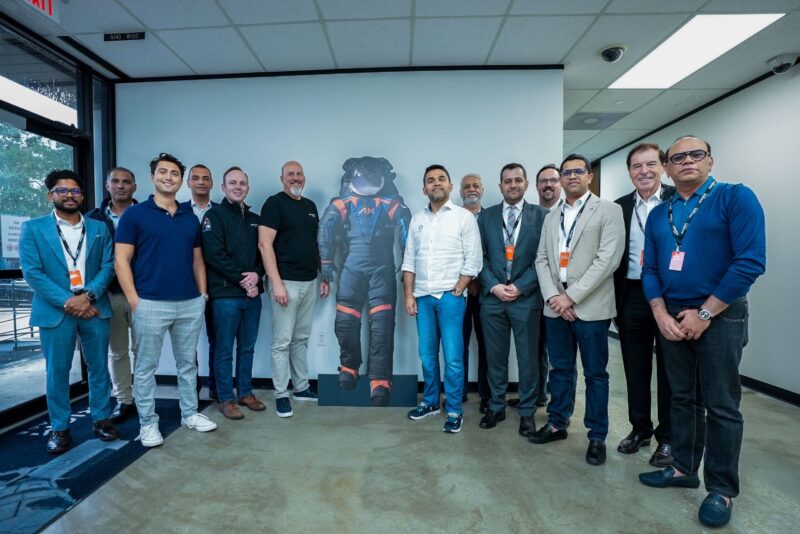A groundbreaking space mission is set to investigate whether astronauts with diabetes can participate in future human spaceflight missions.
The Ax-4 mission, scheduled for launch in May, will see a four-member international crew travel to the International Space Station (ISS), where they will spend up to 14 days aboard the ISS conducting microgravity research and technology demonstrations, among other activities.
One of the most significant experiments on the mission will be the SUITE RIDE research, conducted in collaboration with the UAE-headquartered Burjeel Holdings, which has the potential to transform the landscape of space exploration for individuals with chronic medical conditions.
The crew comprises Commander Peggy Whitson of the United States, Mission Pilot Shubhanshu Shukla of India, Mission Specialist Sławosz Uznański-Wiśniewski of the European Space Agency (ESA)/Poland, and Mission Specialist Tibor Kapu of Hungary.
Whitson, a veteran astronaut and Ax-4 Commander, expressed enthusiasm for the study, saying, “This research is truly exciting as it opens the door for astronauts with diabetes and other chronic conditions to participate in future human spaceflight missions, paving the way for many who were previously medically disqualified.”
The study will focus on testing a range of medical capabilities on Ax-4 that advance diabetes monitoring and management in microgravity. The primary objective is to demonstrate accurate blood glucose monitoring, data transmission, and insulin viability in microgravity conditions aboard the space station. Methods include collecting glucometer readings, calibrating continuous glucose monitors (CGM), and sharing data with medical teams on the ground.
Leveraging its extensive network of hospitals and clinics, Burjeel Holdings will provide medical technologies for the experiment and lead the testing and analysis post-spaceflight.
“Studying glucose metabolism in space provides critical insights into insulin sensitivity, metabolic adaptation, and remote monitoring—advancing both astronaut health and diabetes care on Earth. At Burjeel Holdings, we are committed to transforming these findings into innovative treatments for our patients,” said Dr. Mohammad Fityan, CMO, Burjeel Medical City.
The implications of this research extend far beyond space. The insights gained could improve healthcare delivery on Earth, particularly in remote and extreme environments. The technology used in orbit could enable remote monitoring and treatment of oil rig workers with chronic conditions at sea, adventurers with chronic conditions in extreme environments, and even patients receiving care at home.
Studying biological processes in microgravity presents unique opportunities to understand diseases in ways that are not possible to replicate on Earth. The absence of gravity alters cellular behaviour, enabling more profound insights into conditions such as Alzheimer’s, Parkinson’s, and cancer. Previous research in space has already contributed significantly to insights into protein crystallisation and cellular ageing, advancing the development of new treatments.
Dr. Shamsheer Vayalil, Founder and Chairman of Burjeel Holdings, underscored the significance of this collaboration, stating, “Burjeel Holdings is proud to collaborate on this groundbreaking study aboard Ax-4, which marks a milestone in medical research and diabetes management. The findings from this study have the potential not only to benefit future astronauts but also to translate into meaningful advancements in patient care on the ground. We wish the mission and its crew great success and look forward to the impact this research will have on shaping the future of healthcare.”
Commenting on the UAE’s focus on innovation and cutting-edge scientific capabilities, Whitson said, “To all the young scientists, healthcare professionals, and aspiring astronauts in the UAE, your curiosity and dedication are the driving forces behind the future of space exploration and medical innovation.”
–WAM






